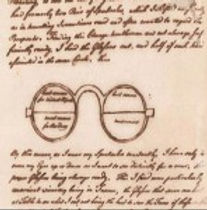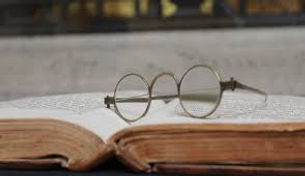Benjamin Franklin
In the modern day United States, there are several concepts and inventions that can be attributed to Benjamin Franklin. He had a tremendous impact on not only the colonial United States but also England and France. Through-out his life, Franklin demonstrated his patriotism and his desire to provide the best for the American people.
Early Life
Franklin’s father was a printer in Boston, Massachusetts and Benjamin worked as an apprentice in his father’s shop. While apprenticing at age 16, he wrote letters to his brother James’ paper under the pen-name of Silence Dogood. Silence Dogood wrote letters to the paper sharing her opinions on the state of her community. She wrote advice on how to deal with issues that she thought were important – particularly how women were treated in colonial Boston.
James Franklin’s newspaper was not affiliated with the Massachusetts government so James and his friends that worked on the paper with him were able to print attacks on the Boston political and religious climate. This dissenting behavior got James thrown in jail after a family dispute with the Mathers family over smallpox. The Mathers were another prominent Bostonian family and the head of the family – Cotton Mather – was a high-ranking member of the clergy in Boston. The Mathers family believed that people should be inoculated against smallpox. The Franklins believed that inoculation made people sicker. James and his friends mocked the clergy for their stance on the issue. The people of Boston agreed with the Franklin family that inoculation made people worse but James’ mocking of the clergy upset a lot of people, which got his thrown in jail. While he was in jail, Benjamin was left to run the newspaper. Rather than being grateful to Benjamin for keeping his paper running, James was angry and even beat Benjamin which prompted Benjamin to run away to Philadelphia.

Philadelphia and Political Life
When Franklin ran away to Philadelphia, Franklin bought the Pennsylvania Gazette newspaper. He drew and published the first political cartoon and contributed anonymous pieces to the paper. Franklin was heavily involved in his community. He spearheaded the cleaning and paving of Philadelphia’s roads and lighting the city. He founded the Library Company and the American Philosophy Society. Franklin also founded the Philadelphia’s Fire Union Company in 1736 as the first fire-fighting organization in the city.
In 1749, Benjamin retired from the publishing business to focus on science, his experiments, and his inventions. He invented the Franklin stove to heat homes efficiently. He refused to take out a patent for it because it was beneficial to society. He also invented bifocals and conducted the famous electricity experiment using a kite and a key being struck by lightning.
Statue of Benjamin Franklin located in the courtyard outside of the Old City Hall building. The statue marks the street location of the original Boston Latin School. Franklin is both a notable attendee of the school and the most notable drop out of the school.


TOP: The original design for Franklin's bifocals. Image from Benjamin Franklin History via Google Images.
BOTTOM: Franklin's own pair of bifocals on display at the Franklin Institute. Image from The Franklin Institute via Google Images.
During the years 1757 to 1775, Benjamin Franklin was the colonial representative to England. He represented Pennsylvania, Georgia, New Jersey, and Massachusetts. His break with England came in 1775 after what is now called the Hutchinson Affair. Thomas Hutchinson was the English-appointed governor to Massachusetts. He was responsible for taking the colonists’ complaints to the king and take their side. But Hutchinson only pretended to side with the colonists and was still fiercely loyal to the English crown. Franklin leaked letters between Hutchinson and his contact in England to the colonists, exposing his deceit. Franklin was then brought before the English Parliament at Whitehall and condemned. He was sent back to America, no longer the colonial representative.
After returning to America, Franklin was one of five men who wrote the Declaration of Independence. While most of the writing in the declaration is Thomas Jefferson’s, Benjamin Franklin had several significant contributions. In 1776, he signed the declaration and became the American ambassador to France in the court of King Louis XVI.
Benjamin was greatly loved by the French people. They described him as a typical American who was very flirty. After the death of his wife, Franklin gained the reputation as a flirt wherever he went. In 1778, Benjamin was a major influence on the French government, convincing them to sign the Treaty of Alliance with America. This treaty secured loans for America from the French. He was also one of the signers of the Treaty of Paris in 1783, after America’s victory in the revolution.
After returning from France, Benjamin Franklin maintained a position in American politics. He became the President of the Executive Council of Pennsylvania, a delegate to the Constitutional Convention, and a signer of the Constitution.
Source: US History http://www.ushistory.org/franklin/info/index.htm


